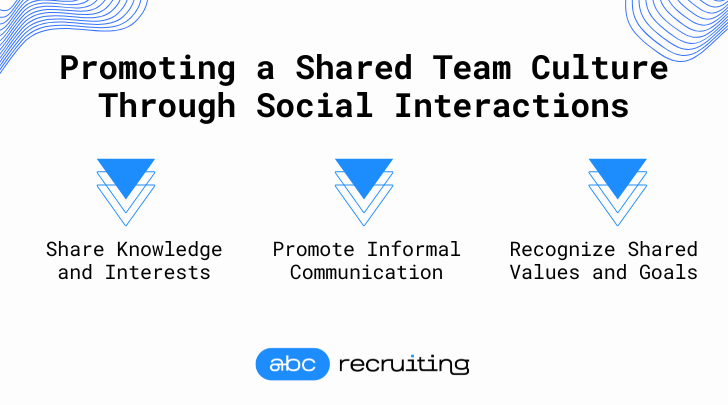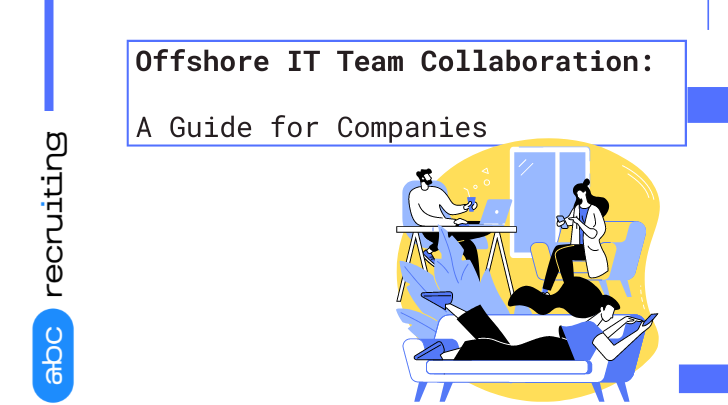The key to making an offshore team work is collaboration. Without it, you’ll end up with mismatched expectations, poor communication, and ultimately a failed partnership.
The good news is, with some strategic planning and nurturing, you can build a collaborative relationship with your offshore team that leads to success for everyone. It starts with finding the right partner, one that shares your values around teamwork, transparency and quality. Then establish processes to facilitate constant communication, feedback loops, and bonding between onshore and offshore staff. Make collaboration a priority by investing in tools and systems to streamline how people connect and work together across borders and time zones.
Most importantly, collaboration is a mindset. Approach your offshore team with empathy, patience and a willingness to understand cultural differences. Give people autonomy and recognition. And lead by example through your own collaborative behavior. Do that, and you’ll be well on your way to forging an offshore dream team. The type of partnership that fuels innovation, accelerates growth, and gives you a competitive edge. Here’s how to make it happen.
Why Collaboration Is Key in Offshore IT Recruitment
Collaboration is key when hiring offshore IT teams. Why? Because communication barriers and cultural differences can pose significant challenges. By prioritizing collaboration, you set your team up for success.
Working with offshore teams often means navigating time zone differences, language barriers, and cultural differences in communication styles. It's critical to establish open lines of communication early on. Regular video calls, instant messaging, and collaborative project management tools are a must. Make an effort to connect on a personal level too, not just professionally. The more your teams get to know each other, the more cohesive they'll become.
You should also clearly define roles, responsibilities, and expectations upfront. Outline individual and team goals to keep everyone aligned. Be extremely thorough in documenting requirements, processes, and timelines. Over-communication is better than under-communication.
Don't forget that an inclusive team culture is key. Value each team member's input and make sure all voices are heard. Be sensitive to cultural nuances in providing feedback and resolving conflicts. Foster an environment of mutual understanding and respect.
Training and knowledge sharing are also vital for collaboration. Invest in getting your teams up to speed on systems, tools, and processes. Create opportunities for cross-training and shadowing. The more insight into each other's work, the better.
With open communication, clearly defined goals, an inclusive culture, and continuous learning, you'll build a collaborative team that thrives despite geographic barriers. While offshore recruitment has its challenges, the rewards of a cohesive global team are well worth the effort. Collaboration is the key to making it work.
Building Trust and Communication Across Time Zones
Once you've recruited your offshore IT team, the real work begins. Building trust and communication across time zones is key to success.
Start with an initial video call to put faces to names and set expectations. Be transparent about your company culture and values. Discuss how you like to communicate and your preferred response times. For example, you may prefer calls over emails for complex issues or want updates within 24 hours. Set a schedule for regular check-ins via call to start building rapport.
Encourage casual chats and virtual water cooler moments. While it may feel forced at first, these social connections help establish understanding and bonding. Ask about their hobbies, weekends, and lives outside work. Share details about your own as well. The more you connect on a human level, the more your collaboration will thrive.
Be extremely clear in your communications. Provide detailed context and background for requests and leave no room for assumptions. Explain how individual tasks fit into larger projects or company goals. Repeat key details and deliverables to ensure alignment. Follow up to make sure all team members are on the same page.
Recognize that there may be cultural differences in communication styles, etiquette, and work preferences. Do your research to understand cultural norms and potential areas of disconnect. Ask open-ended questions to learn team members' perspectives and make sure everyone feels heard and respected.
With the right foundation of trust, communication, clarity and cultural understanding in place, your offshore IT team will feel like a natural extension of your company in no time. While distance separates you, the bonds of shared purpose can unite you as one high-performing group. Collaboration will soar as each side comes to truly know and value the other. Isn't global connection a beautiful thing?
Promoting a Shared Team Culture Through Social Interactions

Promoting a shared team culture is key to collaboration in offshore IT teams. While employees may be separated geographically, you can foster connection through regular social interactions.
Promote Informal Communication
Set up channels for casual conversation and relationship building, not just work discussions. Tools like Slack, Skype, and Zoom make it easy for teams to stay in touch. Consider:
- Virtual coffee breaks or lunches where people can chat openly
- After-hours video calls to socialize
- Team-building activities like online games, trivia, or escape rooms
Giving people opportunities to connect informally helps build comfort, rapport, and camaraderie. These social bonds will strengthen teamwork and cooperation.
Share Knowledge and Interests
Find ways for team members to share information about themselves and their cultures. Some ideas:
- Ask each person to give a short presentation on their local area or country.
- Set up a channel for people to post photos of favorite places, foods, hobbies, etc.
- Play “two truths and a lie” or virtual scavenger hunts to discover common interests
Learning about each other’s backgrounds and lives outside of work helps to develop understanding and empathy. This can help address issues like cultural misunderstandings that might otherwise hamper collaboration.
Recognize Shared Values and Goals
While cultural differences are important to appreciate, also focus on the shared purpose that unites the team. Discuss values and priorities to align expectations, and revisit these discussions regularly. Some key points to convey:
- The overall company mission and IT team objectives.
- What “success” looks like and key metrics to achieve.
- Commitment to open communication, accountability, and mutual support.
Reinforcing these shared drivers will help motivate the team to work together cohesively toward common goals. With the right mindset and tools in place, geographical barriers need not limit collaboration and productivity. By prioritizing social connection and a shared identity, offshore IT teams can perform as cohesive units.
Overcoming Distance and Cultural Differences
While the distance and cultural differences can seem daunting, focusing on communication, empathy, and team building can go a long way. Make the effort to connect with your teams on a human level, set clear expectations, and give them opportunities to connect as a group.
With time and practice, you'll establish the trust and relationships needed for real collaboration to happen. And when that day comes and you see your teams working together seamlessly, you'll realize that the challenges of distance and diversity were well worth overcoming.




